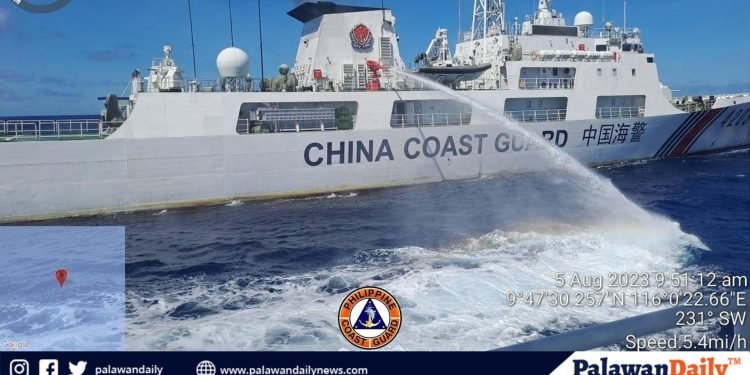For many Filipinos, suspicion of China is no longer just about contested reefs or patrol boats in the West Philippine Sea. It is about counterfeit goods in their markets, crimes in their neighborhoods, and foreign workers competing for local jobs.
That widening unease is now quantifiable. A recent survey by Octa Research found that 85% of Filipinos distrust China, a level of skepticism rarely directed at a single country.
Of the 1,200 adults polled from July 12 to 17, nearly three-quarters, 74%, named China as the greatest threat to the Philippines, eclipsing Russia and North Korea at 4% each. Only 2% identified the United States.
“The roots of this perception are multifaceted,” Octa said in a statement, pointing to concerns that stretch well beyond sovereignty.
While two-thirds of respondents (66%) cited Beijing’s actions at sea, 13% highlighted smuggled Chinese goods, 9% mentioned crimes involving Chinese nationals, and 8% pointed to job competition from Chinese workers.
“Taken together, the survey findings highlight a multi-dimensional distrust toward China,” the group added.
“Filipinos not only view China as a direct threat to the country’s sovereignty and territorial integrity, but also express concerns about its economic activities and social impact on local industries and communities.”
That distrust is reinforced by high-profile maritime clashes. Beijing’s use of water cannons, lasers, and blockades against Filipino vessels has made headlines, and hardened public opinion.
“As long as China exercises dangerous maneuvers from ramming, water cannon and laser attacks, and blocking supply lines to Filipino fishermen and navy marines, Filipinos will not trust China,” said Chester Cabalza, president of the Manila-based International Development and Security Cooperation.
Trust in China, by comparison, is almost negligible: 15% of Filipinos expressed any confidence in Beijing, with just 1% saying they had “a great deal of trust.”
Even so, support for Manila’s response is robust. The Octa poll showed that 76% of Filipinos back government actions in the West Philippine Sea, while only 3% disagreed and 19% remained undecided.
The arbitral tribunal’s 2016 ruling in favor of the Philippines may have legally undercut Beijing’s sweeping maritime claims, but in the eyes of ordinary Filipinos, distrust is being cemented less in courtrooms and more in daily realities, in what they buy, how they work, and where they fish.





















